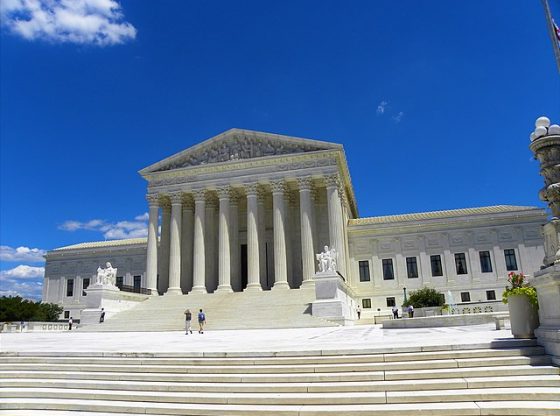The U.S. Supreme Court agreed Friday to review whether a fund managed by the Federal Communications Commission (FCC) that is supposed to improve phone and internet services is legal.
The court’s review responds to allegations that Congress improperly delegated its authority to this independent agency, according to Reuters. The FCC, alongside a consortium of interest groups and telecommunications companies, is appealing a decision from a lower court that ruled such delegation unconstitutional.
The Supreme Court is set to hear the case and deliver its decision by late June, Reuters reported. Established under the 1996 Telecommunications Act, the Universal Service Fund, managed by the FCC, allocates approximately $9 billion annually.
NEW: Trump names Brendan Carr as the new FCC Chair, Calls him ‘a warrior for free speech.’ pic.twitter.com/C3gJdijnoY
— Daily Caller (@DailyCaller) November 18, 2024
Contributions from all telecommunications carriers bolster the fund. The fund is supposed to expand services to underserved rural areas, subsidize low-income Americans, support telecommunications in Native American tribal lands, and aid schools and libraries, the outlet reported. Controversy arose when the conservative group Consumers’ Research and others sued the FCC and the U.S. government. They argued that the delegation of Congress’s revenue-raising duties to the FCC breached the Constitution.
They further contested the FCC‘s decision to transfer administrative responsibilities to the Universal Service Administrative Company, a private nonprofit, the outlet reported. At the heart of this legal battle is the nondelegation doctrine, which says Congress cannot pass its legislative powers to other bodies.
Despite differing opinions in federal appellate courts regarding the delegation’s legality, the Supreme Court’s decision to revisit the 5th U.S. Circuit Court of Appeals’ ruling, which deemed the funding approach unconstitutional, has been met with approval from three major industry groups, Reuters reported. These groups, representing major telecommunications firms like AT&T, Verizon, and T-Mobile, said that overturning the lower court’s decision is crucial for continuing to promote essential communication services across various American communities.
“It threatens to undermine universal service programs that, for many decades, have served to promote the availability and affordability of critical communications services for millions of rural and low-income consumers, rural health care facilities, and schools and libraries across the nation,” the group said, according to Reuters.
Featured Image Credit: Mathieu Landretti












